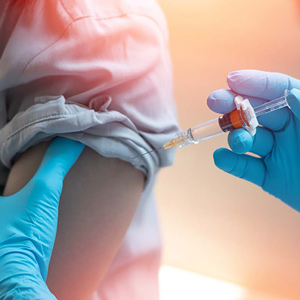Prevention
-
Diet and Cancer: Getting the Research Onto Your Plate
New studies each year purport to show associations between certain foods and cancer. Experts say to focus on the big picture.
by Anne Danahy
-
E-Cigarettes Don’t Live Up to Promises
New studies find that electronic cigarettes trail other methods in helping people quit smoking, but they are growing in popularity among teens.
by Teresa Bergen
-
Understanding Stress and Cancer
A symposium at the AACR Annual Meeting explores how social factors contribute to elevated risk of cancer in some populations.
by Eric Fitzsimmons
-
Healthy Habits
Mushroom for ImprovementA broad review of existing research finds eating more mushrooms is associated with lower risk of developing cancer.
by Ashley P. Taylor
-
Improving Your Diet One Plate at a Time
The New American Plate suggests gradual changes to build healthier eating habits.
by Jon Kelvey
-
October 1: The Week in Cancer News
MRI can be a cost-effective way to screen for breast cancer, and a new study investigates the impact of higher alcohol taxes on cancer incidence
by Kevin McLaughlin
-
Risk in the Air
Air pollution can increase a person's risk of developing cancer, a burden that isn't shared equally in every neighborhood.
by Jon Kelvey
-
Healthy Habits
An Alternative to MeatAre new plant-based meat alternatives a better way to satisfy burger cravings?
by Erin O’Donnell
-
July 16: The Week in Cancer News
A study measures the global impact of alcohol on cancer incidence, and the FDA approves treatments for multiple myeloma and urothelial cancer.
by Bradley Jones
-
Forward Look
The Impact of HPV VaccinationOver a decade after human papillomavirus vaccines first became available in the U.S., their effect on cervical cancer incidence is becoming apparent.
by Carisa D. Brewster














